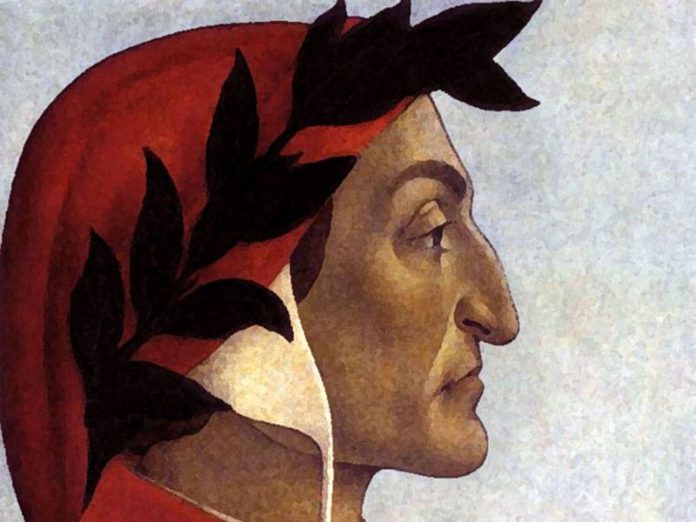by InTrieste
In a remarkable discovery, two original pages from the “first edition” of Dante Alighieri’s The Divine Comedy, dating back to the 14th century, have been unearthed in the Italian city of La Spezia. The find, announced by Mayor Pierluigi Peracchini on Saturday and reported by the Italian news agency ANSA, occurred during the relocation of state archives.
The ancient manuscripts contain excerpts from the canticles of Purgatory and Paradise, pivotal sections of Dante’s magnum opus, which the medieval poet and philosopher completed just one year before his death in 1321. The discovery sheds new light on the historical significance of La Spezia and its connection to the Italian literary giant.
Adding to the intrigue, researchers also uncovered documents related to the “Pax Dantis,” a 14th-century accord that resolved a bitter feud between the Malaspina family and the Bishops of Luni. This discovery highlights a direct link between Dante and the history of the Ligurian city, underscoring the poet’s broader influence during his years in exile from Florence.
Mayor Peracchini has indicated that the city, in collaboration with Italy’s Ministry of Culture, is exploring ways to display the precious parchments to the public. “These findings are a testament to La Spezia’s cultural heritage and its connection to Dante’s life and work,” Peracchini told reporters.
Dante’s Enduring Legacy
Dante Alighieri, widely regarded as the father of the Italian language, began composing The Divine Comedy around 1308. The epic poem’s 14,233 lines, written in the Tuscan dialect rather than Latin, brought literary art to the common people and solidified Dante’s place in world literature. The narrative, which vividly depicts a journey through the realms of the afterlife—Inferno (Hell), Purgatorio (Purgatory), and Paradiso (Paradise)—continues to captivate readers and scholars alike.
The poet’s connection to La Spezia stems from his exile, a period spanning two decades until his death in Ravenna in 1321. During this time, Dante’s interactions with influential figures, such as the Malaspina family, left an indelible mark on his writing and the cultural landscape of Italy.
Celebrating Dante’s Contributions
Italy commemorates Dante annually on March 25, designated as “Dante Day” (“Dantedi”), marking the date scholars attribute to the start of The Divine Comedy‘s fictional journey. This year-long celebration of Dante’s enduring impact is amplified by discoveries such as the one in La Spezia, which provide fresh insights into his life and era.
The manuscripts’ potential public exhibition promises to draw scholars, historians, and admirers from around the globe, reaffirming the timeless resonance of Dante’s work and its profound influence on Italian culture and beyond.





























